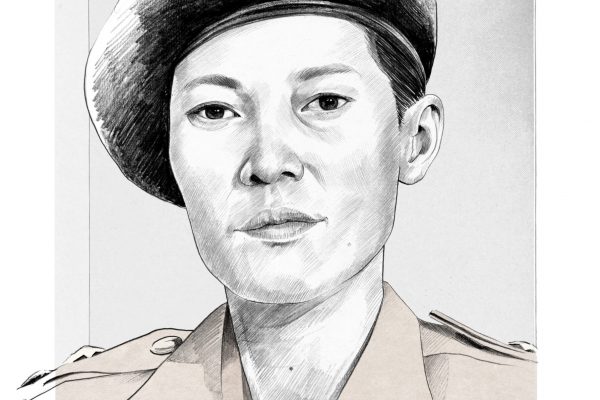Opinion: Leveraging Hong Kong's discrimination laws to protects transgender individuals
I have an enormous amount of respect for the transgender community and for transgender individuals. It takes a great deal of courage for a person to recognise and embrace a nonconforming identity when there is so much stigma in society.
Sadly, however, where there are transgender people, there is also discrimination, and one of my missions, as a lawyer and member of the Equal Opportunities Commission (EOC), is to seek to redress this.
At the EOC, an independent body established in 1996 to address sex, race, disability and family status discrimination, my colleagues and I have created the ‘victim-centric’ approach, which seeks to pay special attention to the needs of victims during the complaint-handling process.
The EOC recognises the inherently disempowering impact of discrimination, the nature of power-differentiated structures in society, the difficulties some victims experience in recounting their experiences of discrimination, and the cultural and social barriers to reporting particular forms of discrimination.
I am also the convenor of the Legal and Complaints Committee (LCC), which is authorised to provide legal assistance to aggrieved persons. This assistance ranges from settling claims to litigating cases in court, with all costs covered by the EOC.
The EOC’s team of investigators and legal professionals first try to settle cases outside of court as part of our complaint-handling process; if conciliation fails, the LCC provides legal assistance. The ultimate aim is to pursue social justice.
It is important to note that my tool is the law; yet at the same time, my limitation is the law. In Hong Kong, there is no general law against discrimination. We have only four sets of laws relating to specific acts of discrimination: harassment and/or vilification against an individual on the grounds of sex, disability, family status, and/or race.
“Transgender activists have spent years advocating that transgenderism is not a disorder.”
Mohan Datwani
Furthermore, these laws only cover specific matters. For example, under the Sex Discrimination Ordinance (SDO), discrimination and harassment relate to employment, education, goods, facilities, services, and club membership.
The laws are also rife with exceptions. If a transgender person is discriminated against during the hiring process or in the workplace, one would naturally expect that they would be protected under the SDO. But that is not the case. Under the SDO, sex is defined only by reference to whether a person is male or female.
For example, if an applicant is denied a job because she is a woman, then the SDO applies on the grounds of sex discrimination. However, it is not possible to stretch the SDO to cover transgenderism (or, for that matter, sexual orientation). That would require reforming the law.
Before I turn to the law reform work being done by the EOC, I need to mention, however distasteful, that a transgender person is able to lodge a claim under the Disability Discrimination Ordinance. In the vast majority of cases, a transgender individual would most likely have been seeing a doctor and/or therapist for a number of years prior to any legal issue relating to discrimination.
This would lay a solid foundation for the transgender person to be diagnosed with gender dysphoria (a condition where a person feels persistent distress due to incongruity between their gender identity and their sex assigned at birth).
As such, any discrimination and/or harassment over employment, education, goods, facilities, services and premises, club membership could amount to disability discrimination.
For me, personally, this is not an appealing argument. Transgender activists have spent years advocating that transgenderism is not a disorder, and to throw this away for the sake of winning an anti-discrimination case can be very hard.
However, from a legal perspective, this may be the only option available in discrimination cases against transgender individuals when the SDO does not apply. The point is that this law exists, and it can be extremely effective.
An even more important point is that around 70 per cent of the cases that come to us at the EOC are settled. Therefore, for transgender individuals who want results, even just to make a point that discrimination is unacceptable, this approach could be considered, especially since conciliation is a confidential process.
If a transgender person pursues the matter further to the LCC, this committee will consider whether or not to grant legal assistance for further settlement and/or litigation based on the facts and evidence of the case. The professional team under the EOC Legal Service Division will help the transgender individual gather all the necessary information.
Given these issues, Hong Kong needs to seriously consider law reform, a matter which we discussed at the EOC in December 2019. As disclosed under the minutes of the meeting, which are publicly available, there is work to be done; and the protection of transgender persons is a topic on the EOC’s agenda.
The proposed timeline is to make further submissions to the government for consideration, following a 12- to 18-month process in which we will consult stakeholders. In the meantime, a number of EOC members are calling on the government to build more unisex toilets and to protect the privacy and personal data of transgender persons.
In summary, the protection of transgender persons in terms of discrimination is limited, but the Disability Discrimination Ordinance is one available option. At the EOC, we understand the issues, and we hope that law reform will happen one day. For now, we have to do the best we can within the limitations of the law.
This article is the personal view of the author and does not represent those of the EOC. It is not intended as legal advice.

